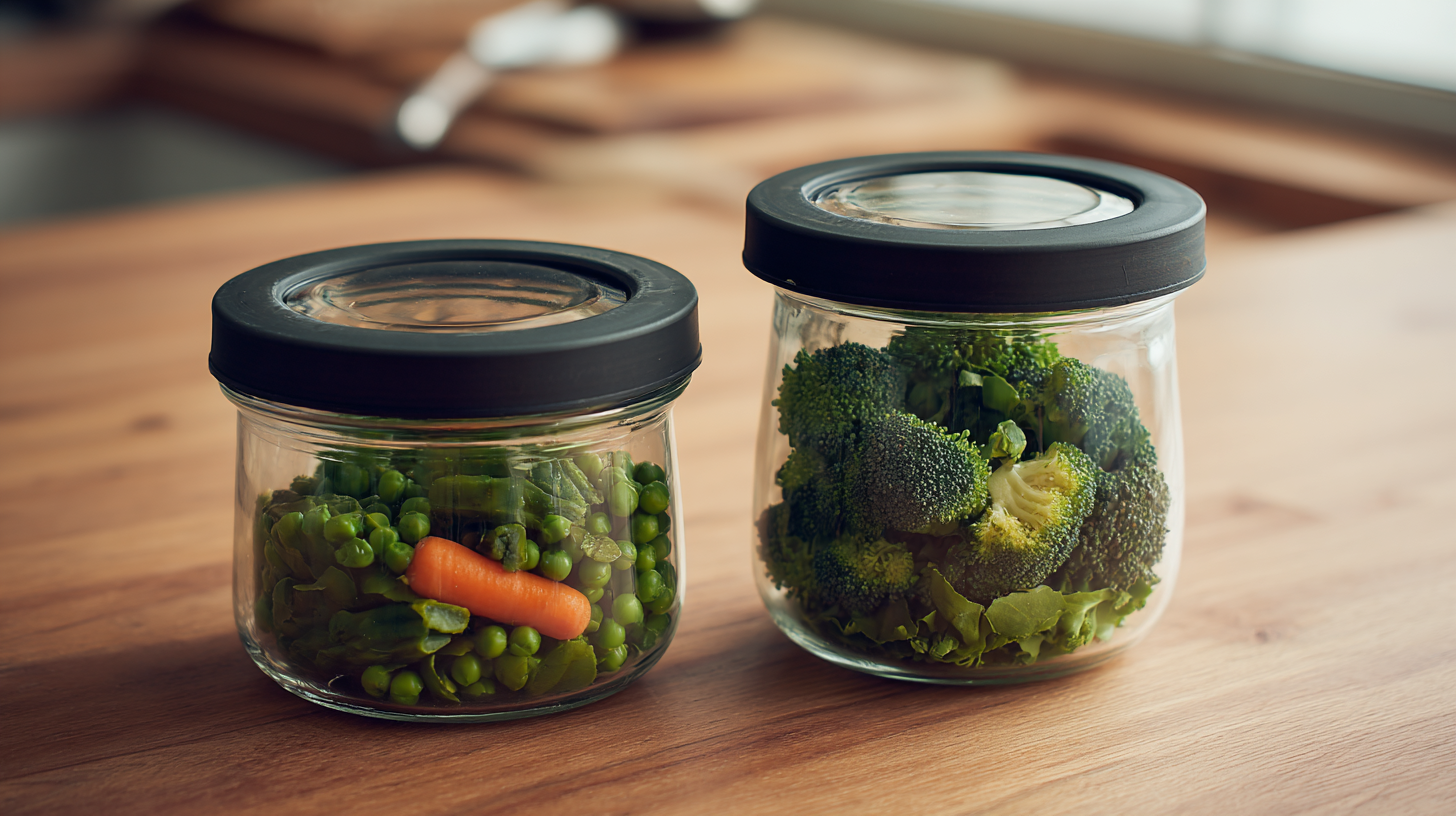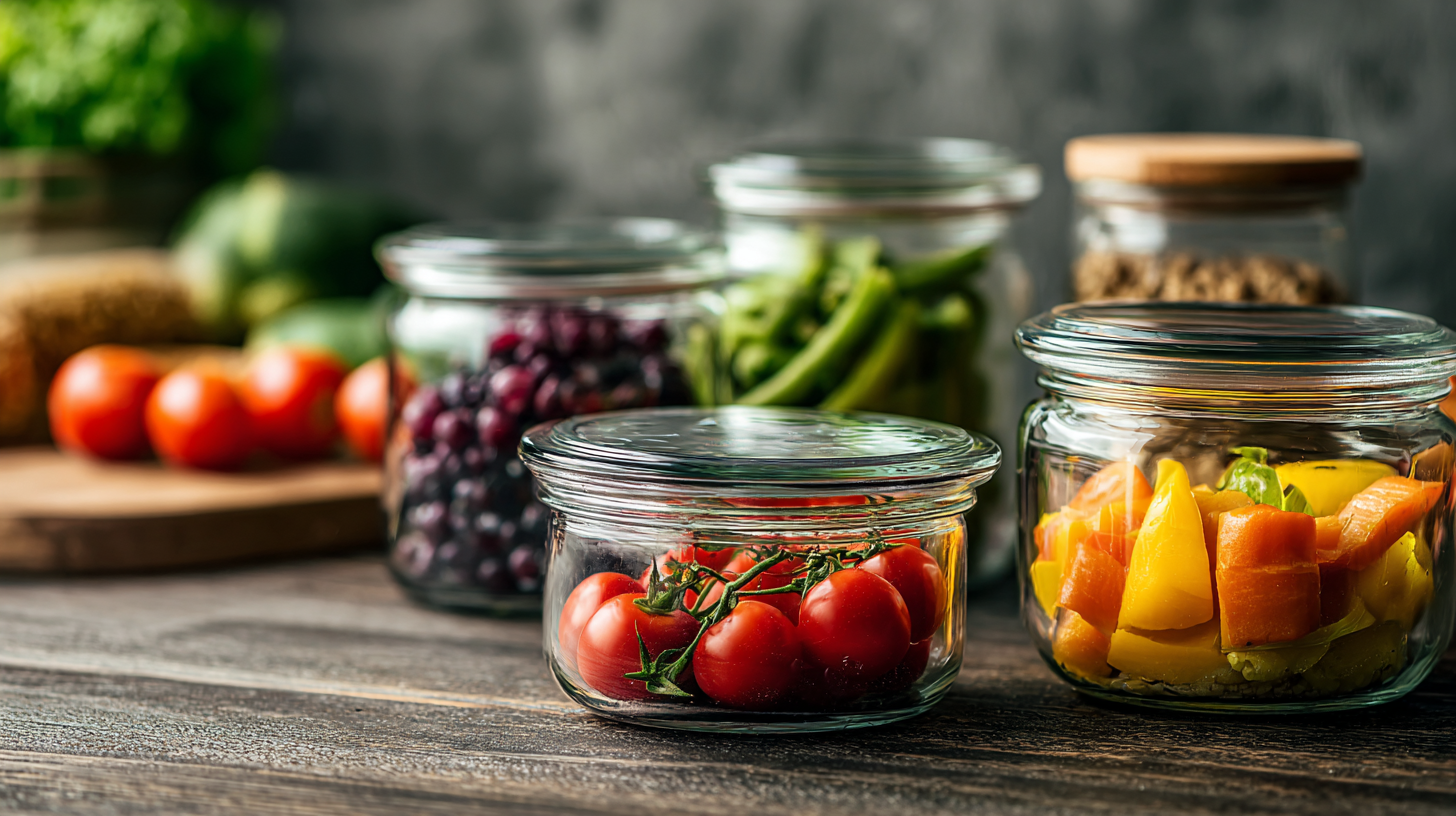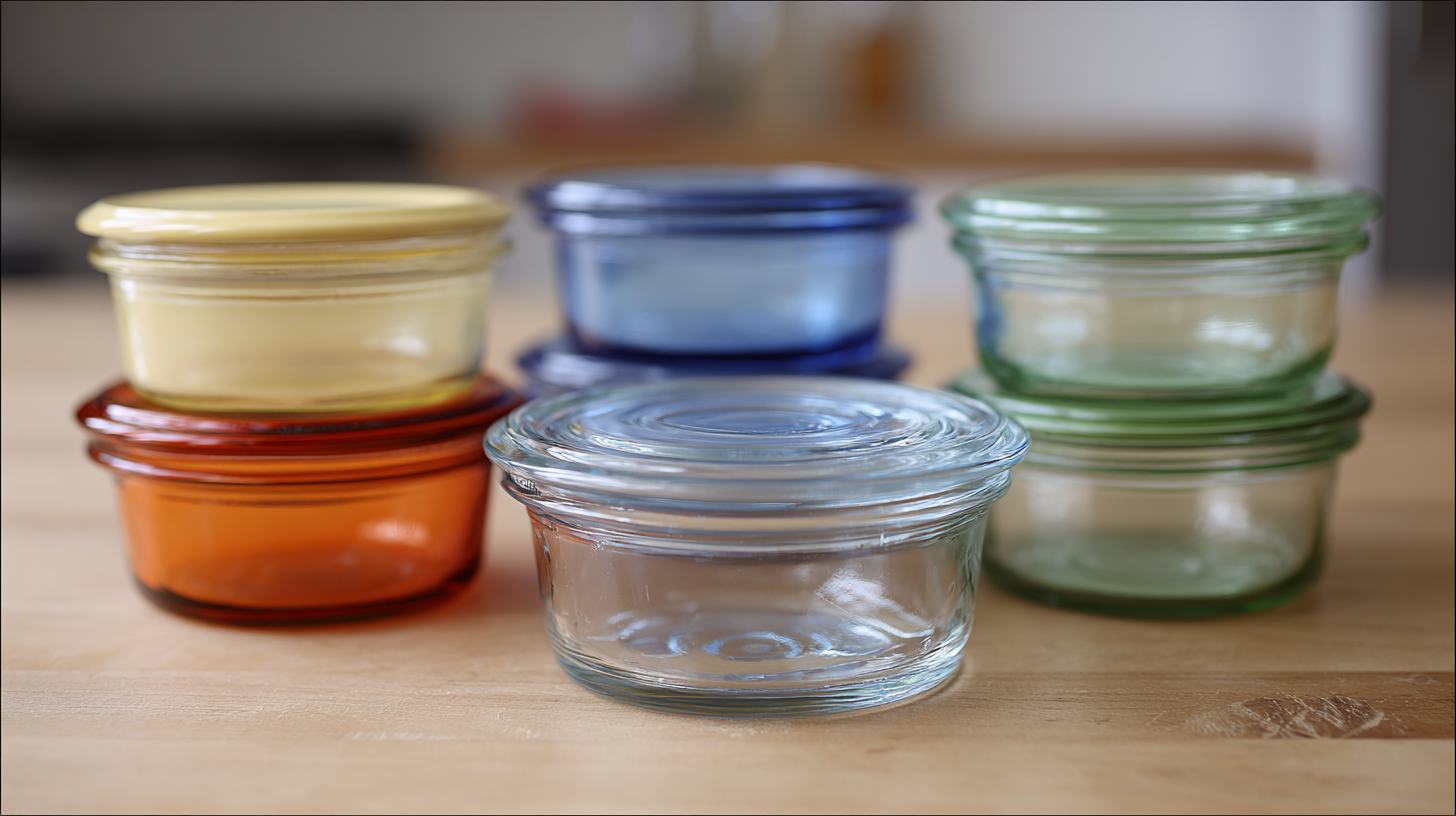
In recent years, the kitchenware industry has seen a significant shift towards sustainability, prompting consumers to reconsider their choices in food storage solutions. The growing awareness of plastic pollution and its detrimental effects on the environment has fueled interest in alternatives such as Reusable Glass Lids. According to a report by the Environmental Protection Agency, Americans generated 292.4 million tons of plastic waste in 2018, with only a fraction being recycled. In contrast, glass is 100% recyclable and can be reused indefinitely without loss of quality, making Reusable Glass Lids a more eco-friendly option.

Furthermore, a study by the Natural Resources Defense Council indicated that switching to reusable products could save households an average of $175 annually, while reducing reliance on single-use plastics. As consumers seek to adopt greener lifestyles, the comparison between Reusable Glass Lids and traditional plastic covers becomes increasingly relevant, highlighting both environmental and economic benefits that cater to the contemporary conscientious consumer.
The growing concern over plastic waste has prompted many consumers to reconsider their kitchenware choices. One compelling alternative gaining attention is reusable glass lids. These versatile covers provide numerous benefits that not only enhance food storage but also contribute to a more sustainable lifestyle. Unlike traditional plastic covers, glass lids are free from harmful chemicals such as BPA, making them a safer option for storing food. They provide an airtight seal that preserves freshness and flavor without leaching toxins into your meals.
In addition to their health benefits, reusable glass lids are incredibly durable and environmentally friendly. Unlike single-use plastic, which contributes significantly to landfill waste, glass is recyclable and can last for years with proper care. This durability makes glass lids a cost-effective investment; buying them means not having to frequently replace plastic covers. With the ability to withstand high temperatures, they are also oven and microwave safe, allowing for versatile usage in meal preparation and storage. By switching to glass lids, consumers can take a meaningful step towards reducing their carbon footprint while enjoying the practical benefits of safer, sustainable food storage solutions.
The use of traditional plastic covers in everyday life has become a significant concern due to their detrimental impact on environmental pollution. According to recent statistics, millions of tons of plastic are discarded each year, a large percentage of which ends up in landfills and oceans. These plastic covers, commonly used in food storage and packaging, take hundreds of years to decompose, contributing to the ongoing crisis of plastic pollution. They pose a threat not only to marine life but also to human health as microplastics permeate our food chains.
In contrast, reusable glass lids offer a sustainable alternative that significantly reduces environmental impact. Unlike their plastic counterparts, glass lids are durable and can be reused countless times, minimizing waste. Their production, while energy-intensive, results in a product that is completely recyclable and does not contribute to microplastic contamination. By making the switch from plastic covers to glass lids, consumers can play a vital role in decreasing plastic pollution and fostering a more sustainable future. The evidence is clear: opting for reusable glass lids over traditional plastic covers is a responsible choice for both personal health and environmental preservation.
| Aspect | Reusable Glass Lids | Traditional Plastic Covers |
|---|---|---|
| Lifespan | 10+ years | Single-use, can last hundreds of years in landfills |
| Recyclability | 100% recyclable | Often not recyclable, contributing to pollution |
| Chemical Safety | Free from harmful chemicals | May leach chemicals into food |
| Cost Over Time | Higher initial cost, lower long-term cost | Low initial cost, higher long-term cost due to replacements |
| Environmental Impact | Minimal impact; reduces waste | Significant plastic pollution |
When it comes to kitchen storage solutions, the cost savings associated with reusable glass lids compared to traditional plastic covers are increasingly evident. A 2021 study by the Environmental Protection Agency reported that over 35 billion plastic lids are discarded each year in the United States alone, contributing significantly to landfill waste. Of these, only 9% of plastics are recycled, leading to an alarming accumulation of plastic waste. In contrast, investment in reusable glass lids, although initially higher, proves economically advantageous over time. A consumer research report from the National Association of Consumer Advocates highlighted that households that transitioned to glass storage solutions saw a reduction in replacement purchases by at least 60% over three years.

In terms of direct cost analysis, a typical pack of plastic lids may cost around $10, but given their average lifespan of just a few uses before warping or breaking, consumers inevitably spend more in the long run. On the other hand, a quality set of glass lids priced at about $30 can last for decades with proper care, translating to only a few cents per use. Additionally, glass lids can withstand higher temperatures, making them suitable for various cooking methods, while plastic options often degrade with heat, further justifying the long-term savings of switching to sustainable alternatives.
The increasing awareness of health and environmental concerns has led many consumers to reevaluate their kitchenware choices. In particular, the potential hazards of plastic food storage options are being scrutinized. According to a 2021 study published by the Journal of Environmental Health Perspectives, it was found that certain plastics, when heated, can leach harmful chemicals such as BPA and phthalates into food. These chemicals have been linked to various health issues, including hormonal disruptions and increased cancer risk. In contrast, reusable glass lids present a safer alternative, as they do not contain these harmful substances and are inert, meaning they won’t interact with food.

Furthermore, evidence from the International Agency for Research on Cancer (IARC) indicates that repeated exposure to plastics, particularly under high temperatures, poses a significant risk to human health. Glass, on the other hand, is non-porous and does not absorb food odors or flavors, making it a more hygienic option. A report by the Glass Packaging Institute highlights that glass containers can be reused infinitely without the worry of chemical leaching, ensuring the purity of stored food. By choosing glass over traditional plastic covers, consumers can make a healthier choice for their kitchens and promote a sustainable lifestyle.
The kitchenware industry is witnessing a significant shift in consumer preferences, with an increasing demand for eco-friendly products. According to a recent report by Grand View Research, the global green kitchenware market is projected to reach USD 46.57 billion by 2025, growing at a CAGR of 5.7%. This trend reflects a heightened awareness among consumers regarding the environmental impact of their choices, particularly concerning single-use plastics. As sustainability becomes a core value for many households, reusable glass lids are gaining popularity as a practical and eco-conscious alternative to traditional plastic covers.
Surveys conducted by The Hartman Group reveal that 70% of consumers are actively seeking out sustainable products for their kitchens, indicating a major shift in buying behavior. This growing preference has prompted manufacturers to innovate and expand their offerings in eco-friendly materials. Glass lids, not only aesthetically pleasing but also durable and recyclable, align perfectly with consumers’ desire for products that minimize waste and promote longevity. Moreover, while traditional plastic covers often contribute to landfill waste and pose risks to food safety due to chemical leaching, glass options provide a safe and sustainable covering solution, enhancing the ecological integrity of the kitchen space.
